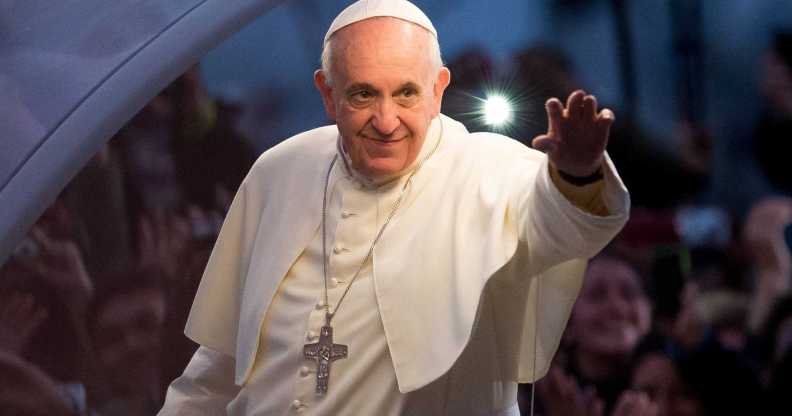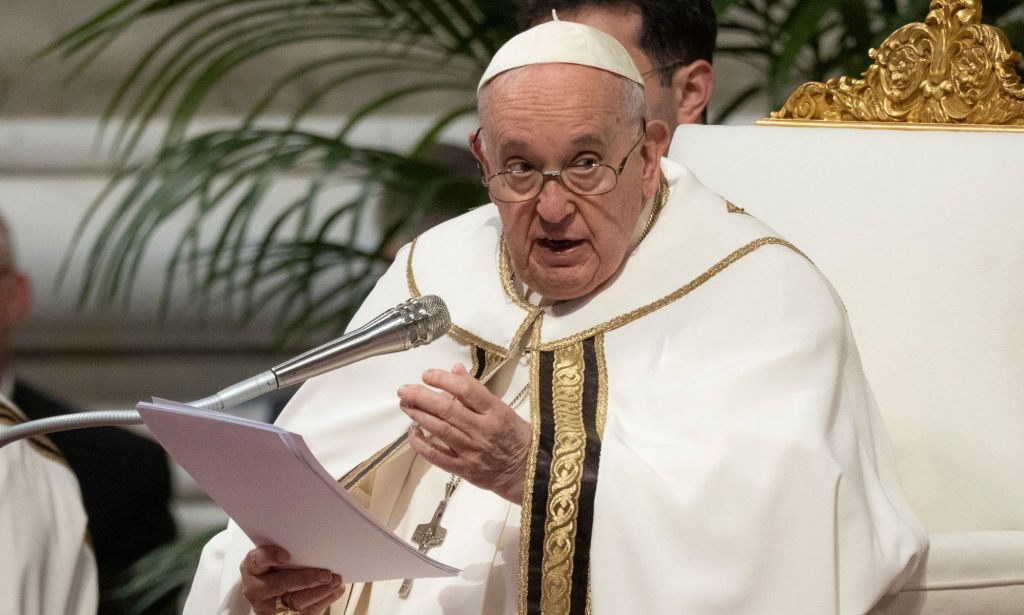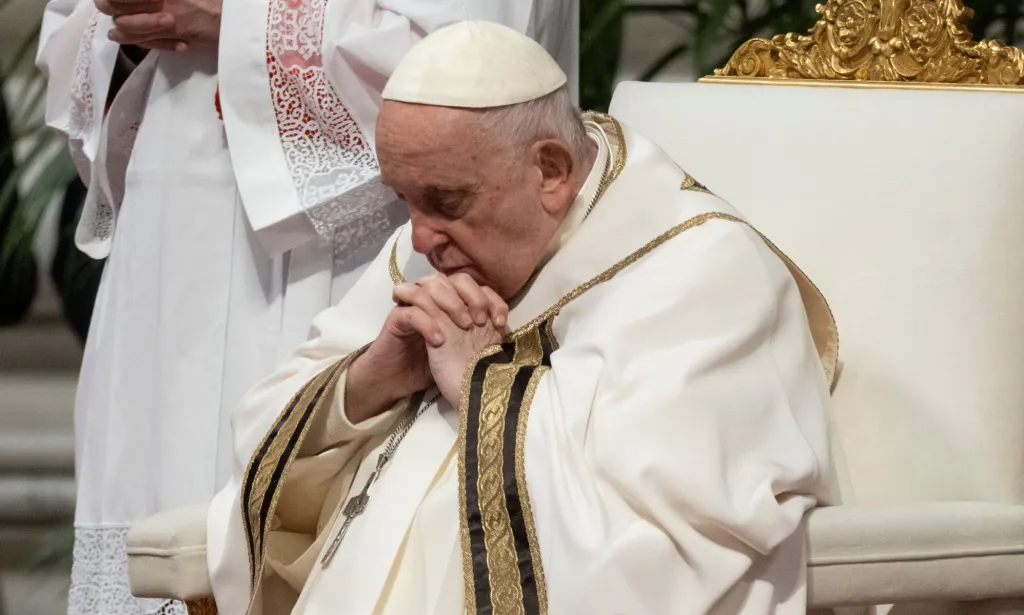Pope Francis calls for ban on ‘deplorable’ surrogate pregnancies

Pope Francis has called out same-sex blessing criticism as “hypocrisy”. (Buda Mendes/Getty Images)
Pope Francis had been in the LGBTQ+ community’s good books as of late, having recently approved same-sex blessings in the Catholic Church. But his latest declaration isn’t likely to go over as well.
In an address given to diplomats this week, often referred to as the “state of the world” speech, Pope Francis stated that surrogate pregnancies should be banned worldwide.
While Pope Francis’s primary issue with surrogate pregnancies seemed to be the possible “exploitation” and a “violation” of dignity, his blanket condemnation of surrogacy would also impact LGBTQ+ people.
Surrogate pregnancies are a popular practice for same-sex couples who are hoping to have children but can’t conceive naturally.

In his 45-minute speech, the Pope said: “I deem deplorable the practice of so-called surrogate motherhood, which represents a grave violation of the dignity of the woman and the child, based on the exploitation of situations of the mother’s material needs.
“Consequently, I express my hope for an effort by the international community to prohibit this practice universally.”
Elsewhere in his speech, Pope Francis declared: “The path to peace calls for respect for life, for every human life, starting with the life of the unborn child in the mother’s womb, which cannot be suppressed or turned into an object of trafficking.”
The religious leader continued that a child is a gift and “never the basis of a commercial contract” before calling for a universal ban on global to “prohibit this practice universally.”
This is not the first time that the Pontiff has expressed his feelings about surrogate pregnancies.
In 2022, he called the practice “inhumane” and argued that it was used to exploit poor women and children who were being treated as “commodities.” He also referred to it as “uterus for rent”.

However, The Associated Press notes that the Vatican’s doctrine office has previously made it clear that same-sex parents who use surrogacy to conceive a child may have their children baptized.
Typically, criticism of surrogate pregnancies is directed towards commercial surrogacy contracts, in which the person carrying the child is paid for doing so.
Commercial surrogacies are banned in Canada, Australia, New Zealand, Brazil, and parts of Europe, including Bulgaria, France, Denmark, Britain, Germany, Italy, Spain, and Portugal.
Commercial surrogacies are primarily carried out in parts of the United States.
Altruistic surrogacies, in which the person carrying the child is not paid for doing so, are more common and are legal in Australia, New Zealand, Canada, Brazil, and European countries like the UK, Denmark, and Portugal.
Pope Francis’s call for a universal ban of surrogacies comes shortly after he announced that same-sex couples can be blessed by Roman Catholic priests.
The landmark decision was widely celebrated by the LGBTQ+ community – the blessings may not resemble a marriage rite and will not legitimise same-sex relationships in the church’s view.
After receiving backlash from certain members of the church, the Vatican reaffirmed its approval of same-sex blessings, and encouraged anyone who took issue with it to take an “extended period of pastoral reflection.”

